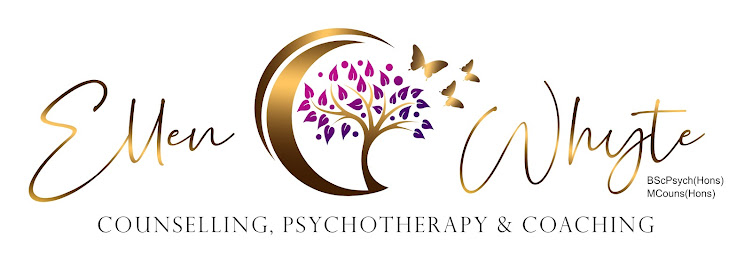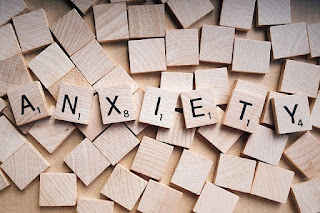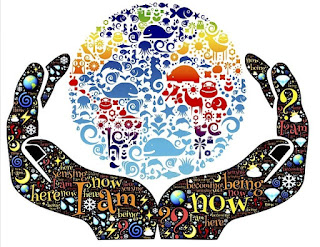Our parents are supposed to love us and want the best for us.
That is not always true. If you have a difficult relationship with your
parents, here are some thoughts about taking that first step towards a happier
life.
Sally’s Story
At the thought of Christmas, Sally’s stomach is in knots. Every
family party runs on predictable lines. Sally says, “Mum is a bit difficult to
shop for.”
No matter what Sally does, it’s never enough.
Gift giving is torture.
“A facial at the local beauty parlour? When do I have time
for that kind of nonsense?”
“Perfume? How very predictable. You have no imagination,
Sally.”
“A silk scarf? I’ll never wear this. How stupid of you,
Sally.”
“A gift certificate? You don’t even have time to buy your
mother a gift?”
Not only are Sally’s gifts roundly criticised, but dinner
conversation is centred on Sally’s career, looks, and dating life.
“Still working at the bank? Well, I suppose it’s good you
can earn something. It’s not like anyone will ever marry you, not with that
awful hairstyle. You’re too tall, too. Have you thought of going on a diet?”
Every year, Sally ends up in tears.
She tries to hide her hurt because if her mother catches her
crying, she screams, “Oh, for God’s sake, water works again? You’re too sensitive,
Sally. I’m only saying it for your own good.”
Sally’s dad says, “You know your mother is difficult. It’s the
way she is. Just put up with it.”
Recognising Emotional Abuse
Sally’s mother is not difficult. Sally’s mother is abusive.
Abuse comes in different forms, but emotional abuse is about
using words to hurt. Also, abusers typically deny that they are causing hurt. When
called out, they deny, minimise, blame or gaslight.
Can Parents Be Abusive? Yes!
We are conditioned from small to believe that parents know
best. Also, society tells us that family is always loving, even when messed up.
Sally wants to believe that her mum is difficult and that if
only Sally got the right present, it would all be totally different.
Truth: people are human, parenting is complicated, and messing
up here and there is perfectly normal.
Truth: some people are lousy parents.
The World Health Organization reports that 36.1% of children
worldwide experience emotional abuse, which includes verbal abuse. Also, 25% suffer
sexual abuse and 22% from physical abuse.
http://pediatrics.aappublications.org/content/early/2016/01/25/peds.2015-4079
https://www.who.int/news-room/fact-sheets/detail/violence-against-children
Although abuse is common, it is extremely difficult to admit
that a parent is abusive.
Kids with broken bones are brainwashed to believe that, “I
must have done something wrong.” It’s the same for verbal violence.
We Are Getting Better At Calling Out Abuse
Thanks to conversations and sharing (hooray for the
Internet!) we are becoming better at spotting and fighting abuse. But it is easier
to recognise it in others than in our own family.
If you recognise yourself as a Sally, it helps to frame events
bluntly.
Don’t Let Abusers Frame Events; State The Truth
Don’t let the abuser frame what is going on. Put your own
words to it.
Not, my mother is difficult
Not, my mother says nasty things because she is being
helpful
But, my mother is perfectly okay with hurting me. She makes
me cry over and over again.
Not, my dad wants to keep the peace
Not, my dad sees everyone in a positive light
But, my father sees my mother hurt me until I cry and he
is perfectly okay with that. He has zero interest in protecting me.
Ask: Would I Act This Way?
We shy away from seeing the truth because it is painful.
Also, it means a fight.
Abusers like Sally’s mum typically enjoy being mean. So when
Sally makes an effort to stop the stream of abuse, her mum will double down and
try and intimidate her.
Sally’s dad will likely help to make that happen. He has a history
of not protecting Sally.
Finally, while Sally’s friends will rally round, some family,
colleagues and others will weigh in, all talking rubbish like, “She’s your mum”
which really means, “We are okay with Sally being verbally abused.”
Fighting all of that is tiring.
Use Perspective Exercises for Clarity
Sally can get some power back by using a perspective
exercise, a tool where she reframes events as though she is a bystander.
“Would I mock and criticise a gift and call someone stupid, fat,
and other mean words? And do this over and over again?” and “Would I stand by
as a friend is destroyed and tell them to just be quiet and take it? Year after
year after year?”
As the answer is probably a resounding no, this will help
her create new boundaries so she can protect herself.
Another good question to ask is, “Does my mum treat her boss
this way? Or a neighbour?” Most likely, Sally’s mum abuses people she thinks
inferior but she is perfectly capable of being polite to people she respects.
Sally may then realise that her mum is an adult. She is
fully aware of her behaviour. She chooses
to be nasty.
Once Sally sees what is happening clearly, the chains should
loosen.
You Have Choices
Once you see where you stand, it is easier to make decisions
about your needs and wants.
Sally has a range of choices: doing nothing, speaking up, limiting
contact, skipping holidays with gift giving traditions, roping in a friend to
help, cutting off all contact with her mum only, telling her dad to step up, cutting
off all family contact etc etc.
She may choose one option for now and change to another option
later.
Tip: there is no one answer and no one fix. You’re an adult
and you can pick what suits you. And if that changes, you change with it!
Sorting Out Abuse Is Complicated
On paper, recognising and dealing with abuse seems very cut
and dried. In practice, it is rather more complicated.
Be gentle with yourself. Take it slowly. Remember it is
sensible to protect yourself from hurt.
If you are a Sally and you want professional support, reach
out. I’m practical, private, and affordable.








